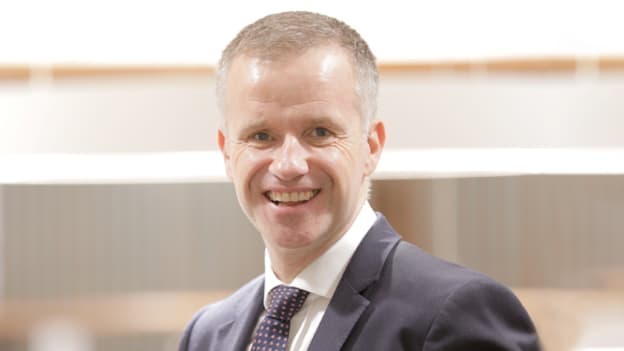The pandemic is fast-tracking the digital agenda: Peter Baker, CHRO, First Abu Dhabi Bank

Peter Baker is the Group Chief Human Resources Officer at First Abu Dhabi Bank (FAB). He has the responsibility for driving the Group’s people and culture journey to ensure the HR function delivers for their people today and prepares them for what is next at FAB.
Peter has 25 years of experience in Human Resources, Sales, and Marketing roles at Procter & Gamble and Maersk Group. Before joining FAB, he served as the Chief Human Resources Officer for Damco, a world leader in logistics and supply chain management, with a presence in over 80 countries. He has vast experience across Asia Pacific, USA and EMEA having lived in Singapore, Netherlands, and Denmark. He holds a bachelor’s degree in Business from the University of Technology, Sydney.
Here are the excerpts of the interview.
COVID-19 seems to be accelerating digital transformation in the workplace across industries. How are businesses fast-tracking their digital agenda amid this crisis?
The pandemic is accelerating the digital agenda in two ways.
Firstly, in order to keep employees safe, companies have rapidly moved to remote working. In First Abu Dhabi Bank, we did not have a “Work From Home (WFH)” process at all until the pandemic hit. Then, in the space of 2 weeks in March, we moved 90 percent of our employees to WFH. This caused us to challenge many assumptions about what is possible. Today, our employees are able to be fully productive in a remote setting.
Secondly, customer expectations, and customer behavior, has changed. During the pandemic, many customers who would have previously preferred to do their banking in person in a branch are willing to adopt more digital ways of interacting with us. Now that customers have seen how easy it is to manage their finances digitally, we don’t expect that they will go back to the old ways of working in the future.
How do you see the future of remote work and how will technologies evolve to make flexible work easier for employees and employers? What are your biggest challenges with respect to this new style of working?
I believe remote working will be here to stay. Personally, I still see a strong role for the office, as a place where people can meet and collaborate. So we are expecting to create an environment where employees can do their work in whatever location is most productive for them, and based on the work that they are doing each day. Hence, perhaps employees will spend 1 or 2 days per week working remotely, and 3-4 days working from the office.
The biggest challenge in the new setting is not technological but personal. Remote working requires a different type of management and leadership compared to traditional office work and requires more discretionary effort from employees. So this has been an adjustment. Our best managers, and our best employees, have adjusted quickly to the new approach, but for other employees, it has taken some time and we have to focus on building their capacity to be successful.
The pandemic is accelerating the digital agenda in two ways: how employees work, and how customers behave
What are your top priorities as you plan for the post-COVID-19 workplace?
Our first priority is always to keep our employees and customers safe. We are continuing to have most of our colleagues working remotely, and continuing to support our customers to do their banking in more digital ways.
We are re-looking our ways of working and getting ourselves future-ready by adapting to the new technology. We are also reimagining our workplace culture, eliminating bureaucracy, and most importantly keeping customers at the heart of our transformation. In the process, we are focusing on our employees and looking at ways to give them greater empowerment, opportunities to learn and grow, and helping them align their purpose with our mission. Additionally, COVID 19 has affected many of our corporate and personal customers, and we are working with them to support their banking needs.
Finally, we plan to emerge from the crisis as a stronger, customer-focused, and increasingly digitally-enabled bank.
What all technologies and digital innovations are you employing to adapt to the new normal?
While we were looking to keep our employees safe, we also used this opportunity to shift our culture. We have made use of collaboration tools such as Microsoft Teams to help teams work together, developed innovative technology to support our customers, and are internally working on creating a digitally enabled bank, which removes all unnecessary procedures.
Read more such interviews and stories from the July issue of our e-magazine: The New Digital Reset at Work.













